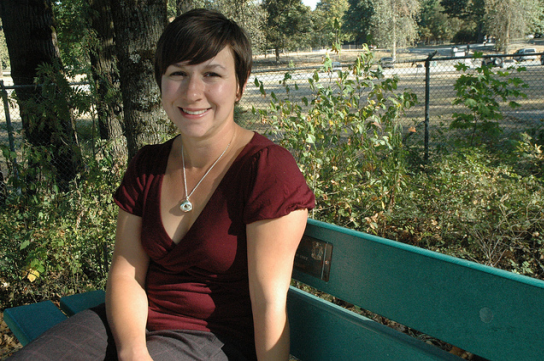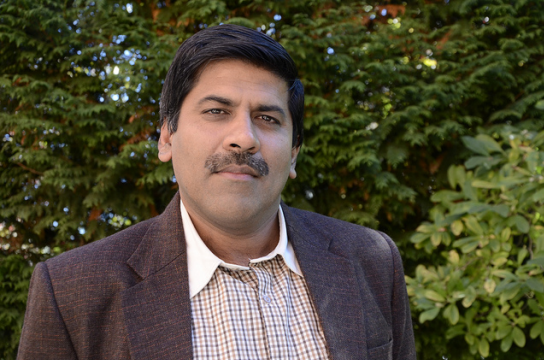By Jessica Wind (The Cascade) – Email
Print Edition: April 3, 2013
Many university professors work on their own projects between spending countless hours marking student work – but when does that research get to see the light of day?
Enter the Scholarly Sharing Initiative – a place for professors to share what they’re working on and get feedback from faculty and students alike.
Developed in 2011 by sociology instructor Chantelle Marlor and former political science instructor Rita Dhamoon, the initiative is designed to bring members of the university together to discuss personal research.
The Scholarly Sharing Initiative provides an opportunity to flesh out ideas, ask questions and engage with their research. A theme is developed for each discussion around which interested individuals can gather from different faculties; speakers present for roughly half an hour before opening discussion up to the table.
This year, English instructor Melissa Walter and communications instructor Michelle Riedlinger have taken over organization and the initiative has featured discussions from the Writing Centre, library tech, English, communications and geography departments so far.
At the most recent sharing initiative on March 27, refreshments and casual discussion were on the menu.
Heather Davis-Fisch of the English and theatre and Rajnish Dhawan of the English and Indo-Canadian studies departments shared their projects. Currently, Davis-Fisch is looking at performance genealogies and Dhawan is investigating the correlations between the Iliad and the Mahabharata.
Davis-Fisch presented the early stages of her research, acknowledging that she is still in the process of asking questions and navigating the material.
“I’m not sure what the newer body of work is yet,” she said of her research into Chilliwack’s Lady Franklin Rock, a geographical landmark that features in local lore and legend.
“I’m really interested in this site and I originally thought that it was going to be a part of a bigger project,” she said, “but now I’m kind of wondering … if it’s part of a different project perhaps about intercultural encounters here.”
Dhawan’s research also looks at intercultural connections, focusing on two major works.
“The idea for this particular project, it happened while teaching an English Homer class,” he described. “While teaching, it was just, ‘Oh my god, I’ve heard of this story somewhere else … I know this story, in some other context.’”
From there he discovered the relationship between the stories—one from ancient Greece, one from India—has a foundation in historical geography. He passed maps around the table to illustrate his findings.
The professors’ anecdotes highlighted the relaxed atmosphere in the room. Faculty from various departments and interested students gathered around the table as the instructors elaborated on their research and asked for feedback to further develop their ideas.
Riedlinger described the goal of Scholarly Sharing Initiative as a way for people to discuss a work in progress rather than a formal presentation.
“Being able to eat and talk ideas is one of the things that people love about the university environment,” she explained. “People come and go, that’s what’s nice about it … the more it can be informal, the more there’s that sense that people feel welcome and involved.”
The final Scholarly Sharing Initiative of the semester will take place on April 11 at 1:15 p.m. in the Centre for Indo-Canadian Studies. Christine Elsey and Douglas Hudson of social and cultural media studies, as well as Wenona Victor of the history department, will be sharing their research.
Attendance is open to anyone and students are encouraged to come and participate.
“I’m really excited when students come because it’s that whole idea … that learning never stops for people.” Reidlinger said. “I think we all come to university because we love ideas and want to share those ideas. So being able to participate in those discussions is a really good thing.”



